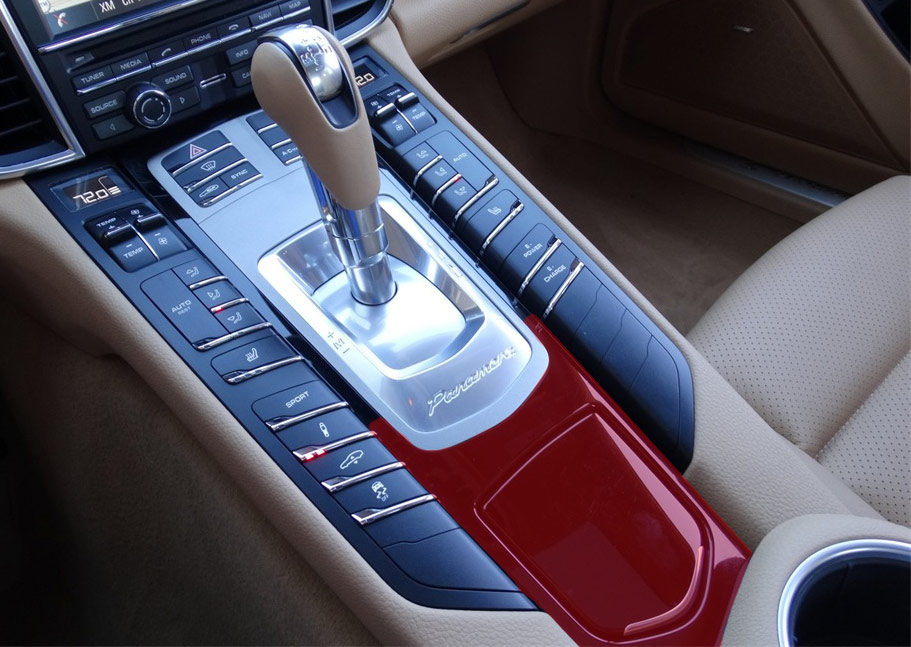RWD OTW

All Panameras are currently all-wheel drive, but a rear-drive version is coming. This shows the Turbo’s air suspension and optional rear-wheel steering. Note the rack running across the rear subframe.
More Aluminum

Panamera is the first car built using VW Group’s MSB platform architecture. The hood, front fenders, body side panels, and roof are all aluminum.
Porsche’s New 550-HP Engine

The 4.0-liter, twin turbo V-8 is a new Porsche-designed engine. It’s 21 pounds lighter than outgoing 4.8-liter engine, and it produces 550 hp and 568 lb-ft with just 0.3 bar of boost. Counter-rotating twin-scroll turbos are located in the vee.
The New PDK Can Handle HOW MUCH Torque?

An all-new eight-speed Porsche PDK transmission also makes its debut in the new Panamera. Seventh and eighth gears are tall to help fuel economy; the Panamera reaches top speed in sixth gear. The transmission can handle up to 737 lb-ft of torque.
Cargo Space and a Split-Folding Rear Seat

Up front, exhausts exit turbos to the rear, between the engine and firewall. At the rear, the hatch and 40/20/40 split rear seat allow the Panamera’s luggage capacity to go from 17.5 cubic feet to 46.0 cubic feet.
Getting Some Air

The new front subframe has adaptive air suspension. Carbon-ceramic brakes are available as an option.
Not Just Aluminum…

The basic structure comprises a mix of aluminum and high-strength steels.
Shut Them Down

The V-8 engine’s cylinder-deactivation system, a first for Porsche, shuts down cylinders two, three, five, and eight. It’s operational from 950 to 3,500 rpm and at torque loads of up to 184 lb-ft.
Yes, the Side Vents are Functional

Panamera side vents are not for decoration, but they do help bleed high-pressure air from the front wheelwell.
An Awesome Wing

The three-piece Panamera Turbo wing is designed to provide full-width aerodynamic function at speed when deployed yet fold small enough to fit within rear hatch aperture.
How the Panamera Reduces Body Roll

The optional Porsche Dynamic Chassis Control Sport system includes stabilizer bars with 48-volt electromechanical actuators that twist against suspension loads to reduce body roll through turns.
No More Scraping Up a Driveway

The new three-chamber air springs have 60 percent more air volume than the previous Panamera air-suspension system. Air springs can lift car 0.8 inch to clear driveways or change the aerodynamic angle of attack at speed, lowering the front axle 1.1 inches and the rear 0.8 inch.
911 vs. Panamera: Rear-Wheel Steer System

Unlike the 911, which uses separate actuators for each wheel, the Panamera rear-steer system uses an electronically controlled rack-and-pinion setup.
When the Rear-Wheel Steer System Gets to Work

The rear-steer system turns the rear wheels in phase with the fronts at speed to improve stability. Up to 30 mph, the rears are steered opposite to the front wheels to a maximum of 2.8 degrees to improve agility.














